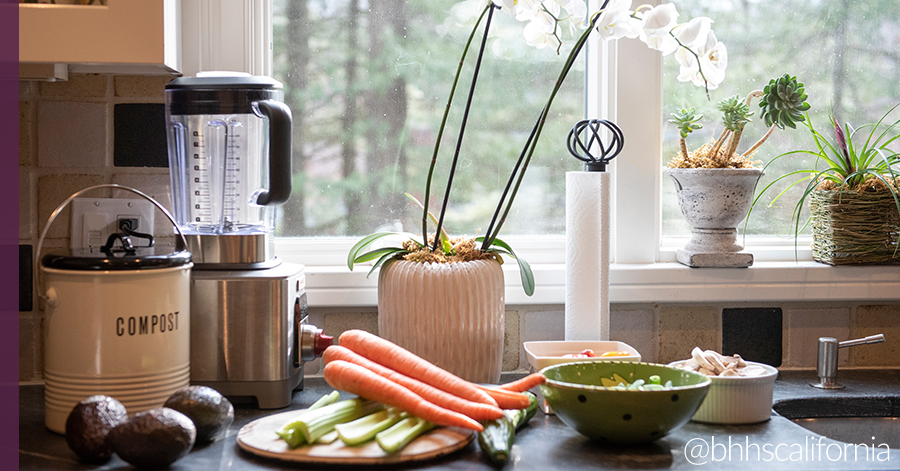
You may have heard that California recently passed a new organic waste law, SB 1383, that went into effect this year, but what does it mean exactly? To put it simply, it means that every jurisdiction in the state, every city, county, or special district that provides solid waste collection services, is required to provide organic waste collection services to all residents and businesses.
Residents will be required to separate organic waste, including “food, green material, landscape, organic textiles and carpets, lumber, wood, paper products, biosolids, manure, etc.” SB 1383 was passed in order to reduce emissions of short-lived climate pollutants, and it set ambitious goals of reducing organizational waste disposal 75% by 2025. For now, no fines will be imposed for failure to comply, but this will most likely change in the future.
More information about when you could potentially get your new bin is available through CalRecycle, the agency overseeing this new change.
If you’re eager to begin your journey to a more eco-friendly household, we are covering some composting basics below.
You may first be asking: Why is composting beneficial? Our compostable ingredients have serious environmental benefits. It also helps reduce the amount waste that sent away to landfills, which can in turn reduce garbage collection bills and, for municipalities, reduces the expenses used to transport and dispose of waste. When done properly, compost acts like an all-natural fertilizer by providing important nutrients your soil needs.
Believe it or not, there is a right way to compost so that you don’t end up with a smelly mess. You also to make sure your compost pile has adequate oxygen and moisture levels, plus the right balance of carbon and nitrogen in order to be successful. All of these things can be achieved by simply paying attention to the ingredients you’re using. The best news? Most of these ingredients are already found in your home right now!
Because the microorganisms in your compost pile are working to break down all of your ingredients, you need to make sure they have the right conditions:
If you’re looking for DIY compost ideas, product suggestions, and composting tips, don’t forget to check us out on Pinterest!
To sum up our thoughts on compost, homemade compost is a great alternative to buying expensive fertilizer, plus it benefits your plants and the environment and saves you money. In addition to your personal benefits, composting helps benefit our community and local environment as a whole, especially under the new organic waste law.
Ready to get started? Let us know how your composting journey is going!
Sources: LA Times, CalRecycle
Like what you see here? Sign up for more! Our free e-newsletter informs you of listings in your community, insider real estate tips, the latest in home trends, and more.
April 4th, 2022 at 11:00 am